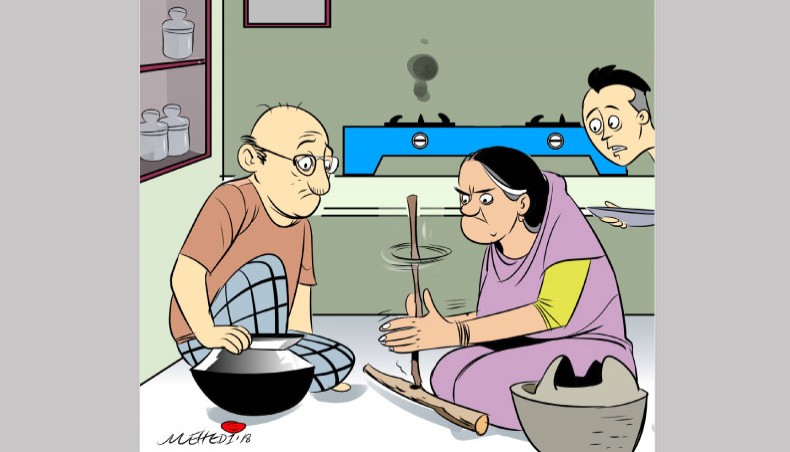Gas supply shrinks as exploration poor
Supply of indigenous natural gas has started depleting from its average peak of 2,750 million cubic feet per day when poor efforts in oil and gas exploration leading to insignificant discoveries added little to the existing reserve over the years.
The level of gas supply started depleting since October 2017 and settled at 2,685 mmcfd until Monday from its average peak supply of 2,750 mmcfd affecting industrial production, electricity generation and household cooking, according to data available with Petrobangla, the state-run Oil, Gas and Mineral Resources Corporation.
Experts and officials fear that insufficient efforts in oil and gas exploration in land as well as offshore waters may pose a serious threat to the country’s energy security as the demand may have to be met with imports.
Despite trumpeting about its efforts in oil and gas exploration, the government in its nine consecutive years in office drilled 10 exploration wells by Bapex, the state-run Bangladesh Petroleum Exploration and Production Company, leading to discovery of three small gas fields with merely 800 billion cubic feet of reserves, Petrobangla data shows.
International oil companies drilled only three exploration wells including one in the offshore, which led to no discovery over the years.
Petroleum engineering professor at Bangladesh University of Engineering and Technology M Tamim said that the country’s annual gas consumption reached one trillion cubic feet and it would require addition of new gas of the same volume every year to maintain the level of current supplies which is already 38 per cent short of the demand.
He particularly blamed the government for failing to make any progress in oil and gas exploration in the country’s vast offshore area, approximately 1,20,000 square kilometres, in the past four to six years after dispute settlements of maritime boundaries with Myanmar and India.
To favour a particular company, the government suspended its move to carry out a two dimensional seismic survey on the offshore waters for more than two years leaving no progress in awarding contracts to the international oil companies for offshore exploration, he alleged.
Energy expert Badrul Imam, also a professor at geology at Dhaka University, said that the efforts in oil and gas exploration were very frustrating as there were no major discoveries in the country in the recent times.
State minister for power, energy and mineral resources Nasrul Hamid, however, has blamed energy division for the failure in making any significant progress in oil and gas exploration in the past four to five years.
He was earlier hopeful of some progress in the next one year from the government’s programme of drilling 108 wells including a good number of exploration wells as well as production wells.
Experts, however, strongly opposed the government’s move to drill 108 wells in five years as it was not realistic and would increase the rate of failure in discovering gas fields due to mistakes in identifying the locations of the wells in short time.
Bapex former managing director Mortuza Ahmad Faruque said that the authorities concerned were reluctant to drill exploration wells in locations like Jaldi and Patiya in the Chittagong Hill Tracts, Teknaf in Cox’s Bazar, Pabna, Bogra and Tangail having much potential of gas reserves.
The experts criticised the government for awarding drilling contracts to Russia’s Gazprom Corporation depriving Bapex which also doubled the drilling costs.
Faruque said that rigs and the other drilling equipment of Bapex were left idle for months as its jobs were awarded to Gazprom.
Besides, he said, ONGC Videsh and KrisEnergy-Santos JV made no significant progress in oil and gas exploration in three shallow sea blocks- 4, 9 and 11 after signing production sharing contracts in 2014.
On March 14, 2017, Petrobangla also signed another PSC with Korean POSCO Daewoo for oil and gas exploration in deep sea block 12 which yielded no progress so far, said officials.
Failing to discover gas reserves, the government is putting emphasises on imports of expensive liquefied natural gas as 1,000 mmcfd gas is expected to be fed to the national gas supply system pushing the average gas price by three to five times.
Bangladesh Textile Mills Association vice-president Mohammad Ali Khokon said that inadequate supplies of gas and electricity, coupled with their frequent price hikes, put the entire textile industry in serious crisis.
He alleged that the government policies in energy sector narrowed the scopes of value addition to industrial products, particularly textile.
News Courtesy: www.newagebd.net











